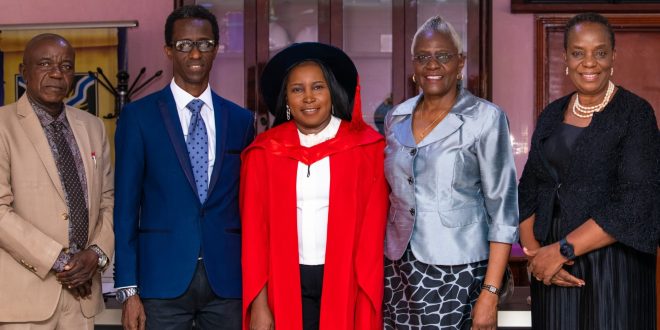By Deborah Odekola
The University of Ibadan (UI) has called on researchers to transform their findings into innovative solutions that contribute directly to societal development.
This message was delivered by Professor Peter O. Olapegba, the Deputy Vice-Chancellor for Administration, at the opening of the University’s Research and Development Fair (UI-Town Connect 2024).
Speaking on behalf of the Vice-Chancellor, Professor Kayode Oyebode Adebowale, Professor Olapegba emphasised that research should not remain confined to academic circles but should be channeled towards driving practical, real-world solutions that improve the lives of Nigerians.
The theme of the fair, “Re-focusing Research and Innovation Towards Scaling-Up Nigerian Brands for Commercial Value,” was aimed at encouraging the alignment of academic research with economic growth and national development.
The Deputy Vice-Chancellor highlighted the importance of ensuring that research focuses on creating long-term value for Nigeria’s regional development, while also contributing to the growth of commercial enterprises.
He stressed that researchers should direct their energies towards solving practical problems that can create jobs, boost industries, and improve the country’s overall economic prospects.
The fair, which brought together alumni, faculty, students, and industry experts, also served as a platform for networking, brainstorming, and reviewing future research directions.
It was described as a timely initiative, given the pressing need for research-driven innovation in Nigeria.
Pastor Olukayode Pitan, former Managing Director of the Bank of Industry (BoI) and an alumnus of the University of Ibadan, was the keynote speaker.
He commended the University for organising the fair, calling it an important step toward showcasing the nation’s intellectual and industrial potential.
Pitan emphasised that the fair presented an opportunity for Nigeria to turn research ideas into tangible products and services, thus tapping into the wealth of ideas that often remain untapped due to insufficient commercialization efforts.
He called for a strategic approach to scaling Nigerian brands by leveraging the country’s unique products, goods, services, and natural resources to place Nigeria at a competitive advantage globally.
He further argued that scaling Nigerian brands would involve identifying and enhancing local products, as well as exploring how these goods and services can be made more attractive in international markets.
In another development, Professor Olukemi Kehinde Amodu, a renowned expert in Genetics and Public Health at the University of Ibadan’s Institute of Child Health, emphasised the urgent need to improve genetics research in Nigeria.
In her 566th inaugural lecture titled “My Genes are to Blame, or Not?!”, Professor Amodu advocated for a multidisciplinary approach to genetics research that integrates basic sciences, clinical sciences, epidemiology, and molecular biology to address Nigeria’s growing health challenges.
She pointed out that while the country has made some strides in the area of genetic research and genomics, there are still many gaps that need to be filled.
Professor Amodu noted that Nigeria faces a shortage of medical genetics testing services, genetic counseling, and specialised clinics, which has hindered the ability to fully explore the potential of genetics in addressing public health issues. She urged the Nigerian government to invest more in genetics research, emphasising that this investment could help curb the rising burden of diseases and improve the country’s health outcomes.
She called for the creation of stronger collaborations across disciplines and stressed the need for both local and international funding to drive genetics research.
In her recommendations, she also highlighted the importance of involving industry, government, and society in the research process, as well as fostering greater interaction among academia, industry, and policymakers through frameworks like the quadruple helix model.
Professor Amodu also suggested that universities like UI should establish innovation hubs focused on science, technology, and social innovations, which can have a direct impact on Nigeria’s health and development.
 National Telescope national telescope newspaper
National Telescope national telescope newspaper



